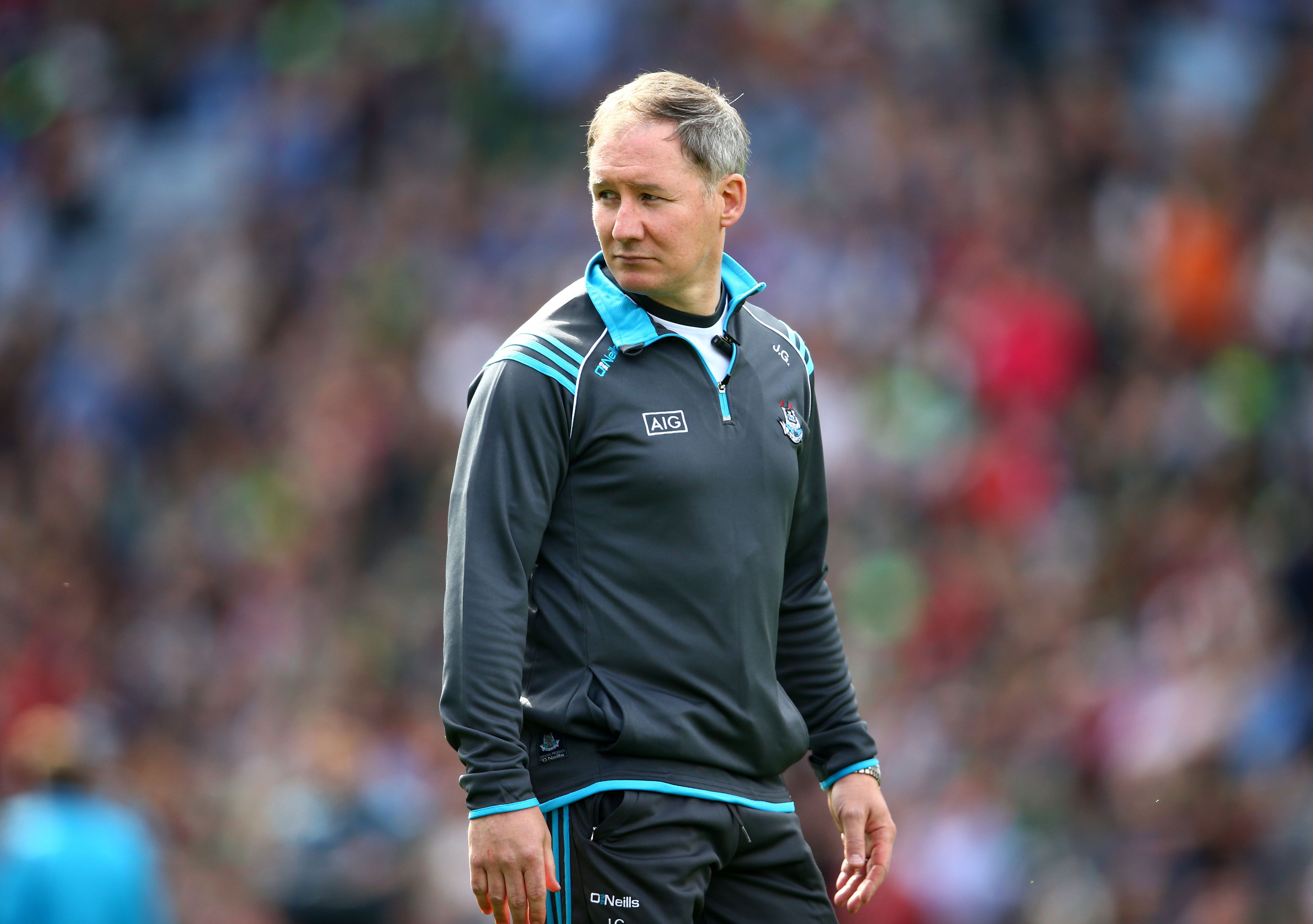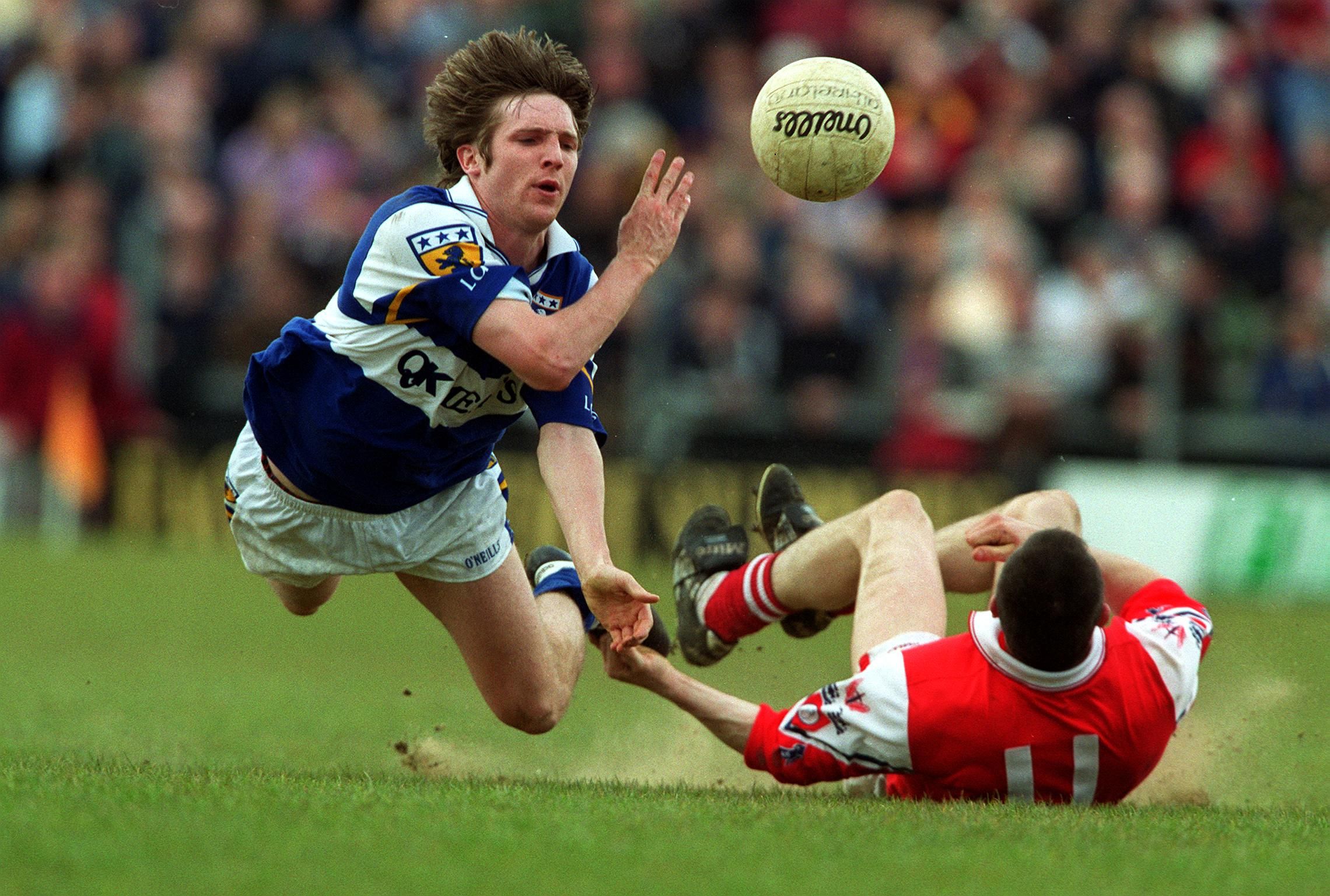

Share
12th July 2016
05:09pm BST

 Dublin’s regular media manager wasn’t present and I was allowed to push the issue with Jim longer than I normally would. After the interview I asked Jim if he was ok with it and he said he had no problem whatsoever - that I was only doing my job. Afterwards we walked out of Parnell Park together chatting about Alan Brogan and how well he was playing. I always liked Jim, he’s a gentlemen and a good football man.
The interview was broadcast later that night and blew up on social media. Jim got a pasting, he didn’t come across well.
The next day their media manager informed Newstalk that, because of my interview, no member of the Dublin panel or management would talk to the station after the Leinster final against Westmeath the following Sunday. He deemed it unfair and said I forced the issue and wouldn’t let it go. Ironic considering I would have moved on if Jim had answered my questions.
The ban on the station was lifted the following week but since then three or four of my interview requests with Dublin players have been turned down, outside of sponsored events when they are getting paid and have to perform media duties.
Personality is not something we see much of in the GAA anymore.
Last weekend, SportsJOE’s Mikey Stafford drew something out of Maurice Shanahan whose frustration was clear after Waterford’s defeat by Tipperary.
I interviewed Austin Gleeson a couple of weeks ago and he was also aware that talking to the media was good for him. Waterford seem to be an exception to the rule, but they’re a rarity.
https://twitter.com/SportsJOEdotie/status/750409492672774144
Who are the characters nowadays? Who are the jokers, the messers and the bad boys? Do they even exist? In the era of controlling county managers, is there room for these fellas on a panel?
Even if they do exist we don’t get to know them because of the cautious nature of most interviews involving GAA players. Their Twitter accounts can also be monitored and controlled. No wonder players end up as robots.
I embraced the media during my career. I answered questions honestly and got my personality out there. It did me no harm. I would observe media bans when they were enforced but I always felt they were unnecessary.
I put up with a job I hated during my inter-county career because I lived for the weekend when I’d get a chance to express myself on the football field. Nobody likes Sunday nights, but I found them horrible. The best day of the week was over and now there was just drudgery as I waited for the next game.
Dublin’s regular media manager wasn’t present and I was allowed to push the issue with Jim longer than I normally would. After the interview I asked Jim if he was ok with it and he said he had no problem whatsoever - that I was only doing my job. Afterwards we walked out of Parnell Park together chatting about Alan Brogan and how well he was playing. I always liked Jim, he’s a gentlemen and a good football man.
The interview was broadcast later that night and blew up on social media. Jim got a pasting, he didn’t come across well.
The next day their media manager informed Newstalk that, because of my interview, no member of the Dublin panel or management would talk to the station after the Leinster final against Westmeath the following Sunday. He deemed it unfair and said I forced the issue and wouldn’t let it go. Ironic considering I would have moved on if Jim had answered my questions.
The ban on the station was lifted the following week but since then three or four of my interview requests with Dublin players have been turned down, outside of sponsored events when they are getting paid and have to perform media duties.
Personality is not something we see much of in the GAA anymore.
Last weekend, SportsJOE’s Mikey Stafford drew something out of Maurice Shanahan whose frustration was clear after Waterford’s defeat by Tipperary.
I interviewed Austin Gleeson a couple of weeks ago and he was also aware that talking to the media was good for him. Waterford seem to be an exception to the rule, but they’re a rarity.
https://twitter.com/SportsJOEdotie/status/750409492672774144
Who are the characters nowadays? Who are the jokers, the messers and the bad boys? Do they even exist? In the era of controlling county managers, is there room for these fellas on a panel?
Even if they do exist we don’t get to know them because of the cautious nature of most interviews involving GAA players. Their Twitter accounts can also be monitored and controlled. No wonder players end up as robots.
I embraced the media during my career. I answered questions honestly and got my personality out there. It did me no harm. I would observe media bans when they were enforced but I always felt they were unnecessary.
I put up with a job I hated during my inter-county career because I lived for the weekend when I’d get a chance to express myself on the football field. Nobody likes Sunday nights, but I found them horrible. The best day of the week was over and now there was just drudgery as I waited for the next game.
 When my chance came, I didn’t get a break in the media because I have a stack of All-Ireland medals. My football career was chequered, hit and miss at best. I got a break because people knew I had a bit of personality and wasn’t afraid to say what I thought.
My advice to inter-county players and managers is to tell your media manager to f*ck right off. Tell him it’s your life and you want to get your name and personality out there. Tell them you want to be honest and be yourself. Tell them you’re an amateur footballer and that potential employers are looking on.
Tell them what you say won’t affect the result at the weekend and the opposition won’t be posting it on their dressing room wall. That idea is more old and tired than acceptance speeches. Nobody ever put an opponent's comments on the wall while I was a player.
These captain’s speeches nowadays usually follow the same old routine -
Tá an-áthas orm an corn seo a ghlacadh….etc
Say you’re accepting the cup on behalf of your teammates who are called a ‘great bunch of lads’
Thank the 23 sponsors, if you can name a few individually all the better
Thank the physio, the nutritionist, the S&C coach, the stats men, the maor uisce, video analysis team, lifestyle coach and media manager.
Thank the selectors. Thank the manager, usually introduced by saying ‘but there’s one man left I want to thank’
By then end the crowd have sobered up and have lost the will to live, like a crowd at a wedding enduring a two-hour speech from the father of the bride. By the end, they don’t want to celebrate, they want to go.
Maybe acceptance speeches should come to an end. They need to stop if captains don’t start showing some personality. Tell a joke, tell a story or get someone up to sing a song. Give us something.
When my chance came, I didn’t get a break in the media because I have a stack of All-Ireland medals. My football career was chequered, hit and miss at best. I got a break because people knew I had a bit of personality and wasn’t afraid to say what I thought.
My advice to inter-county players and managers is to tell your media manager to f*ck right off. Tell him it’s your life and you want to get your name and personality out there. Tell them you want to be honest and be yourself. Tell them you’re an amateur footballer and that potential employers are looking on.
Tell them what you say won’t affect the result at the weekend and the opposition won’t be posting it on their dressing room wall. That idea is more old and tired than acceptance speeches. Nobody ever put an opponent's comments on the wall while I was a player.
These captain’s speeches nowadays usually follow the same old routine -
Tá an-áthas orm an corn seo a ghlacadh….etc
Say you’re accepting the cup on behalf of your teammates who are called a ‘great bunch of lads’
Thank the 23 sponsors, if you can name a few individually all the better
Thank the physio, the nutritionist, the S&C coach, the stats men, the maor uisce, video analysis team, lifestyle coach and media manager.
Thank the selectors. Thank the manager, usually introduced by saying ‘but there’s one man left I want to thank’
By then end the crowd have sobered up and have lost the will to live, like a crowd at a wedding enduring a two-hour speech from the father of the bride. By the end, they don’t want to celebrate, they want to go.
Maybe acceptance speeches should come to an end. They need to stop if captains don’t start showing some personality. Tell a joke, tell a story or get someone up to sing a song. Give us something.
 Stephen Cluxton’s dull acceptance speeches are as good a reason as any why this tired tradition needs to stop. But they won’t. In fact. we’ll be seeing a lot more of them this summer.
Stephen Cluxton’s dull acceptance speeches are as good a reason as any why this tired tradition needs to stop. But they won’t. In fact. we’ll be seeing a lot more of them this summer.
Explore more on these topics: